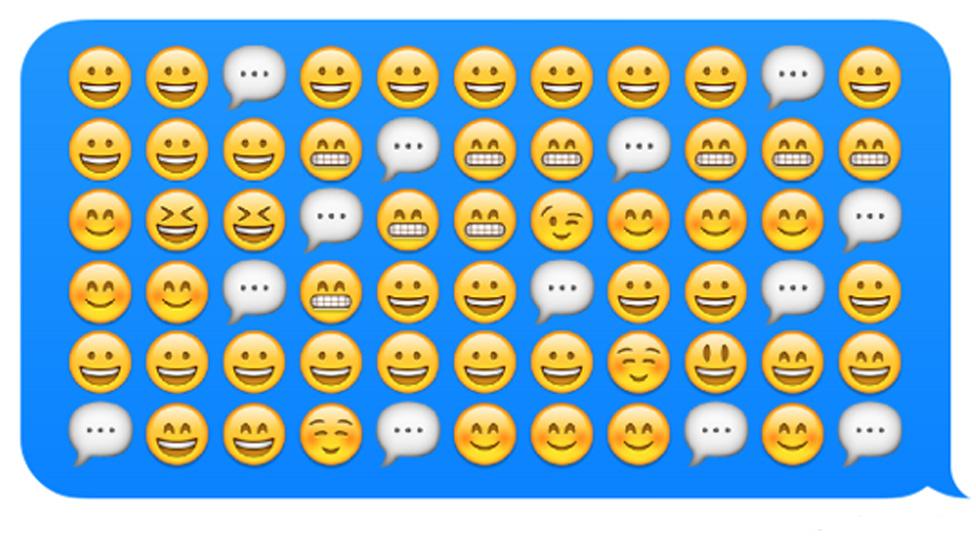'Emoldjis': Gran's call for older people's lives to be reflected
- Published
The emojis include ones showing back pain, bingo and spending the kids' inheritance
False teeth and bad back emojis, the brainchild of a frustrated grandmother, could soon be in use after being sent off for official approval.
Diane Hill, from Coventry, felt that existing smiling, sleepy and sad faces did not represent the lives and likes of older people.
The 56-year-old compiled her own "emoldjis" for the over 50s.
An artist sketched her ideas which were sent to off to the Unicode Consortium which regulates emoji updates, external.
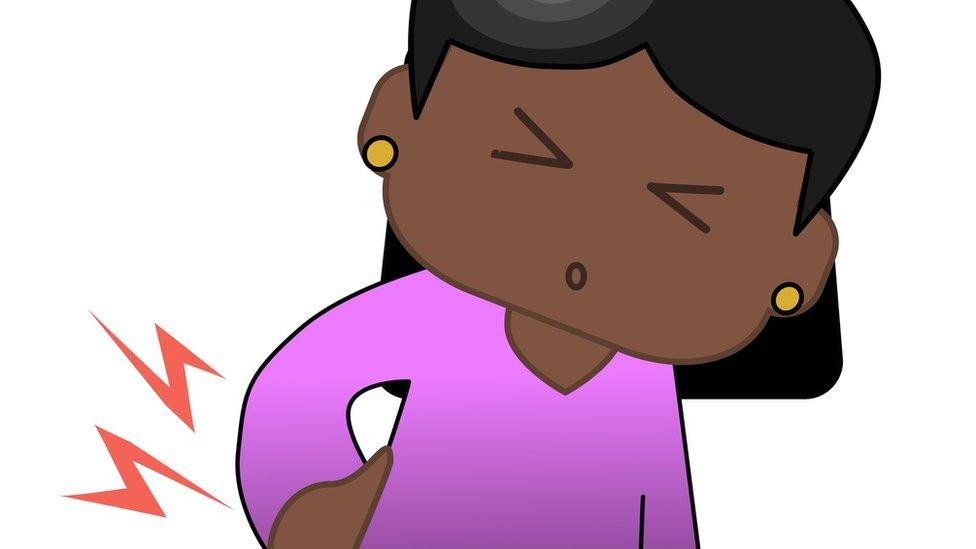
Diane Hill said she felt there needed to be more emojis - like this one for back pain - to reflect the lives of older people
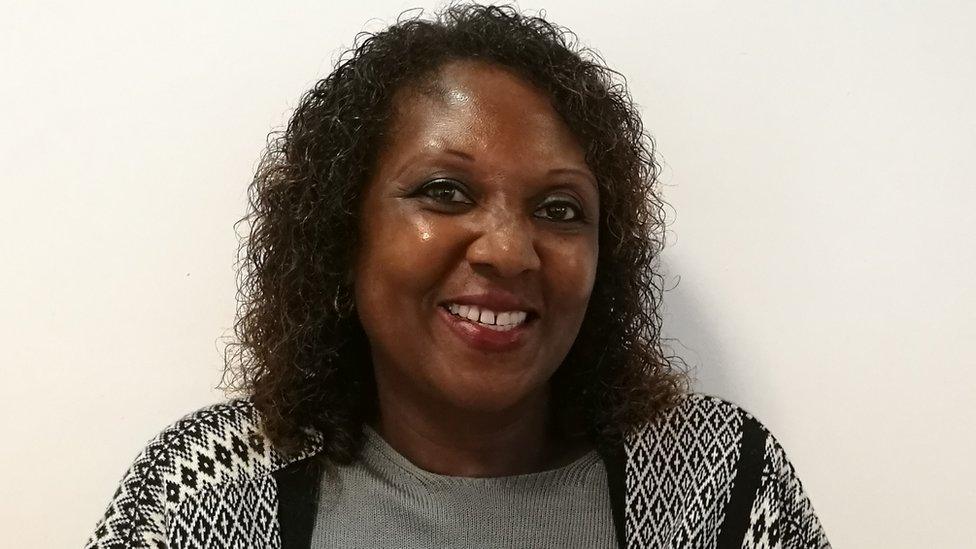
Grandmother Ms Hill, from Coventry, said she was pleased with the final designs
Ms Hill said: "I need something that shows pain because my back hurts, my knees hurt and I need emojis with glasses."
She came up with the idea as part of a BBC outreach project about how the media reflects the people and places around them.
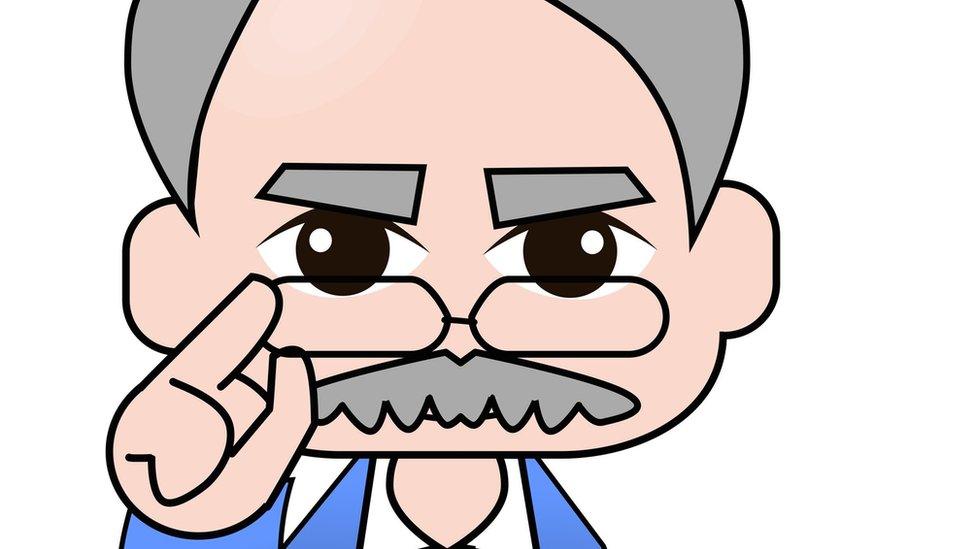
A disapproving look from an older person could be made available to all
Local artist Chris Oxenbury was commissioned to formally design her suggestions and sketches which have now been sent off for approval.
If successful, smartphone users could see designs such as "older person looking disapproving over glasses", "spending the kids' inheritance", and "no budgie smugglers" just a thumb-swipe away.
"When I first saw them I thought they were fantastic," Ms Hill said.
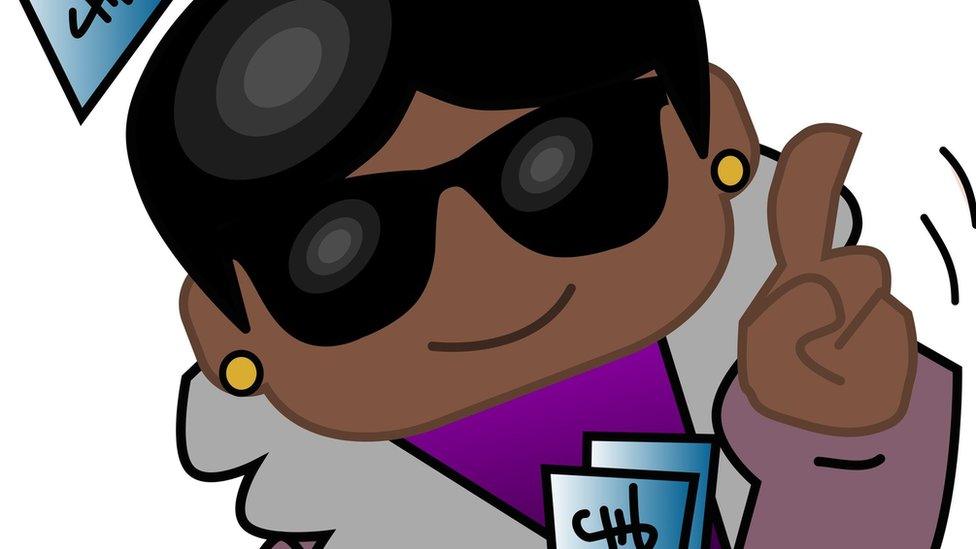
An emoji for 'spending the kids' inheritance' could prove particularly popular with some older people, not so with a younger audience
"I love the 'spending the kids inheritance one'.
"I could send any of these emojis to my friends and they'd know what I mean."
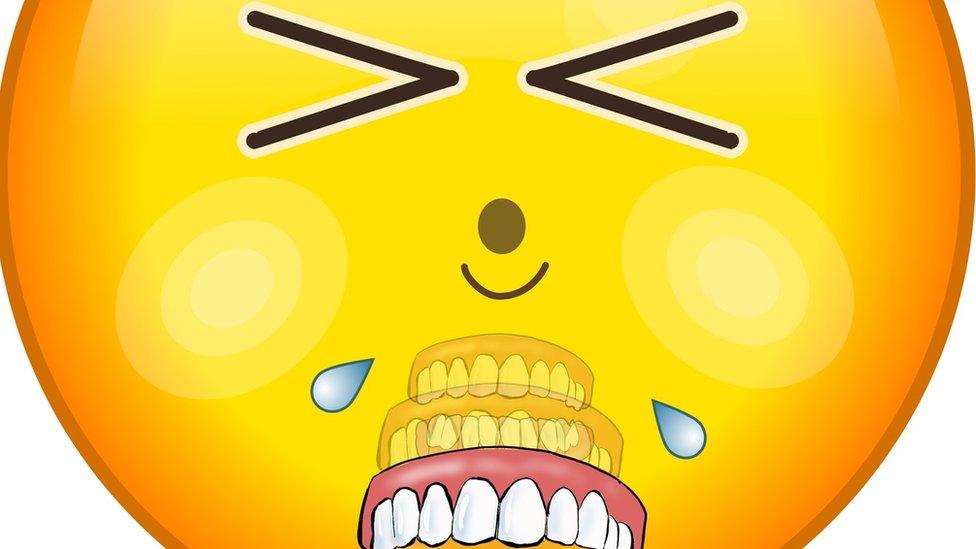
'Losing your false teeth' is another of the designs submitted for approval
Siobhan Harrison, from the Open Doors project at BBC Coventry & Warwickshire, said: "With new emoji characters only released by Unicode on an annual basis it could be over a year before Diane's emojis hit our screens but at least she has raised some interesting issues about how the media reflect older people's lives and had some fun along the way."
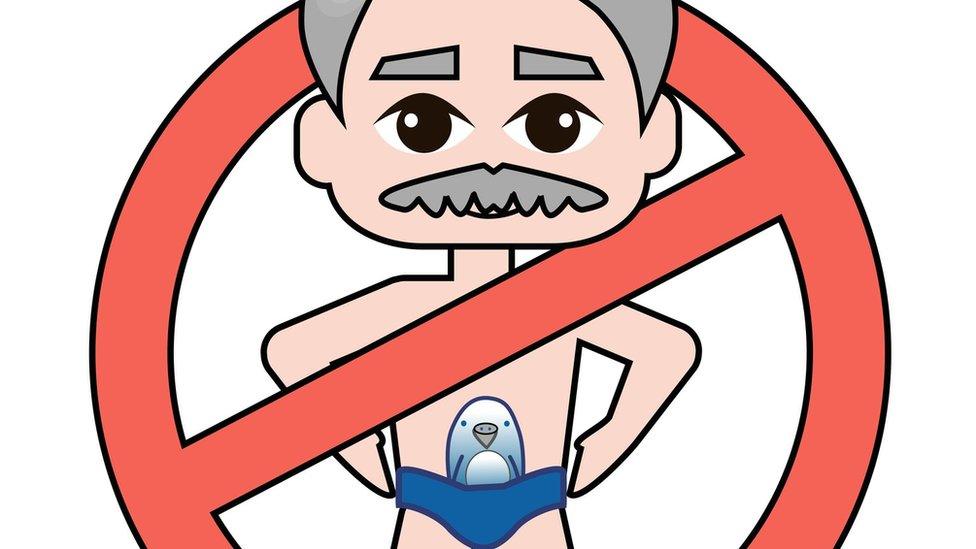
Older men in 'budgie smugglers' is a no-no to Ms Hill and has been added to the list
Experts said last year "emoji language" is the fastest growing in the UK with millions of people choosing the digital images over written text.
The word emoji literally means "picture" (e) + "character" (moji) in Japanese and was added to the Oxford English Dictionary in 2013.
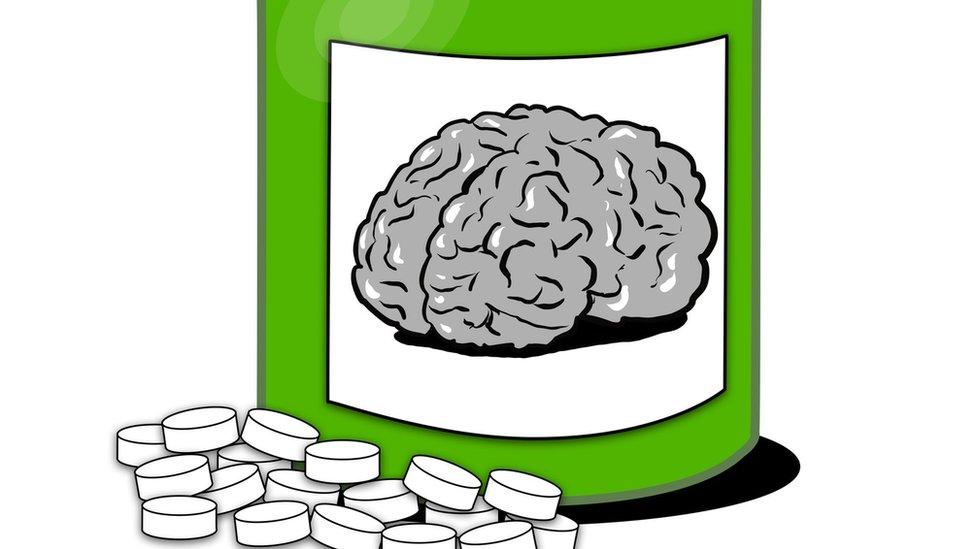
"Memory pills" is another image wanted to reflect life for the over 50s
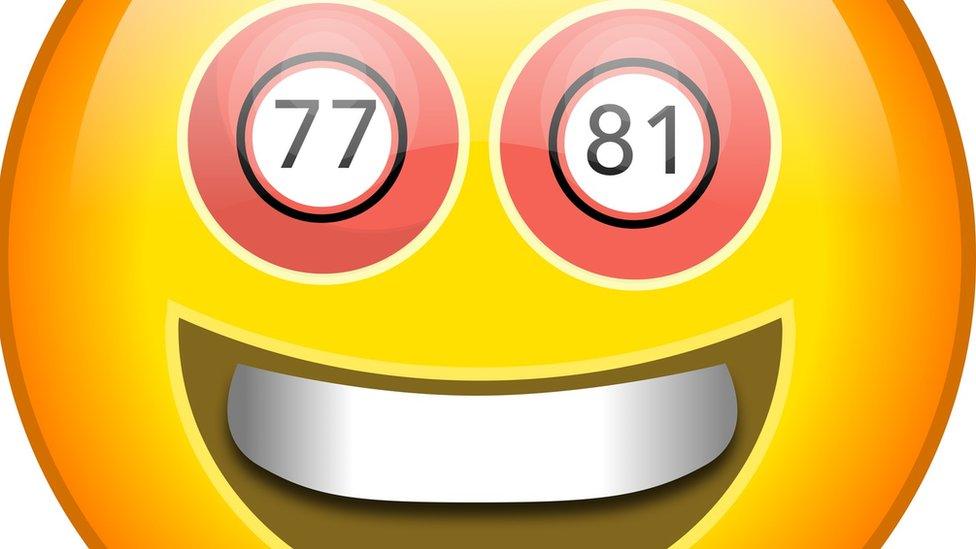
Finally, a bingo emoji - surely an essential image for young and old?
- Published11 May 2016
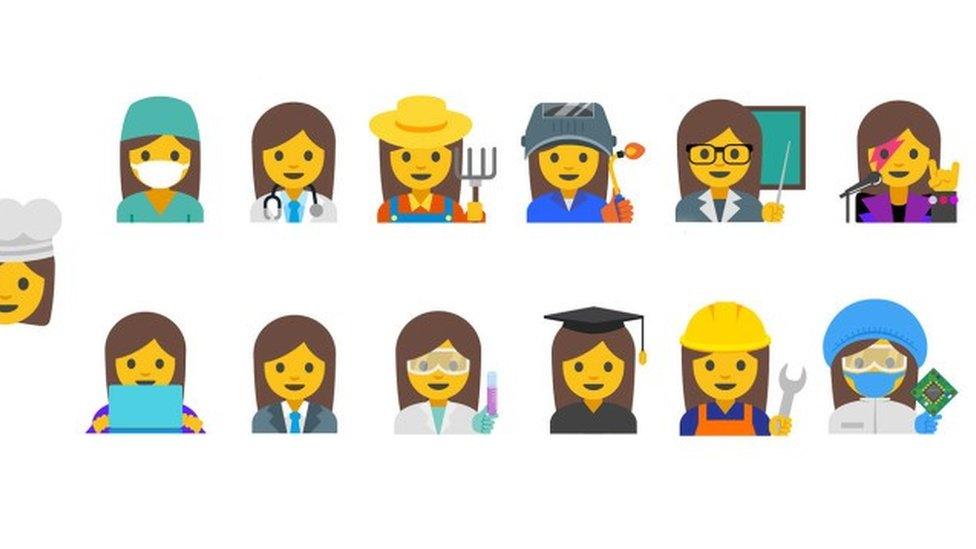
- Published14 September 2016
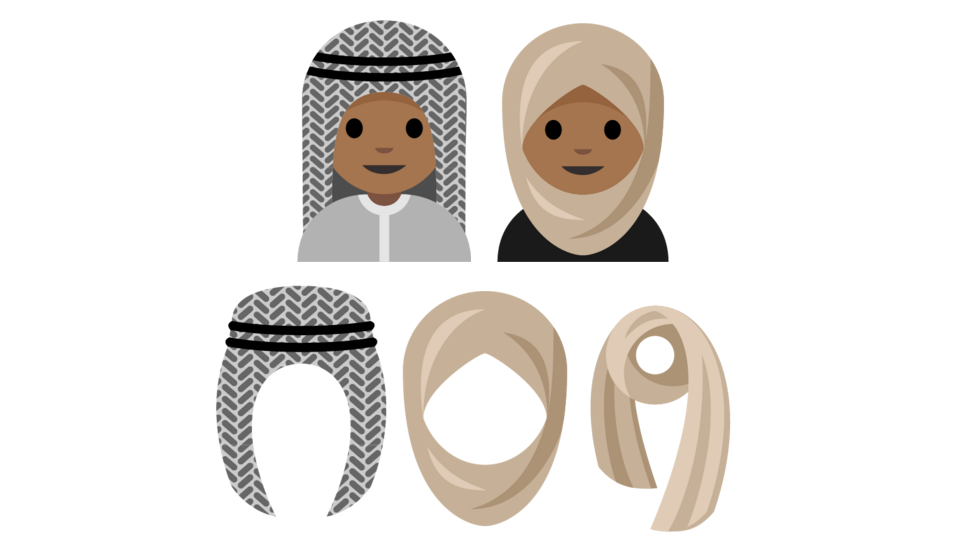
- Published20 June 2016

- Published6 June 2016
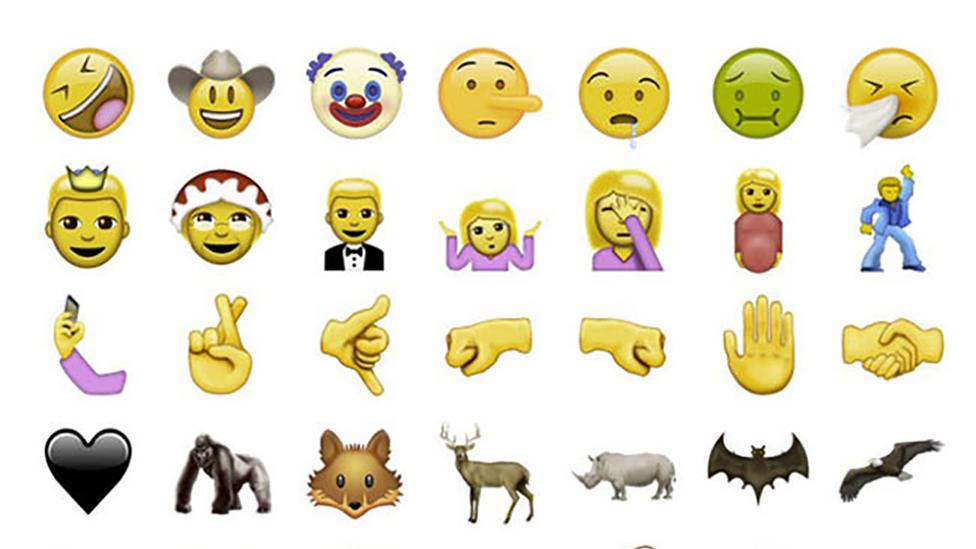
- Published19 May 2015
